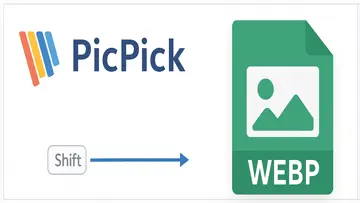Effortless Logging Integration with Haskell's FFI Syslog Bindings
Peter Simons' Haskell FFI bindings to syslog(3) provide a seamless way to integrate system logging into Haskell applications, enhancing error tracking and performance monitoring.
Editor’s Review of Haskell FFI Bindings to syslog(3) by Peter Simons
The Haskell FFI (Foreign Function Interface) bindings to syslog(3) created by Peter Simons provide a powerful tool for developers looking to interface Haskell applications with system logging capabilities. This library leverages Haskell’s strengths while allowing access to the system-level logging mechanisms available on UNIX-like operating systems. Below, we will delve into the features, installation, usage, and benefits of this library, helping you understand its significance in Haskell programming.
Key Features
- Direct Access to System Logs: The bindings provide a straightforward way to send log messages directly to the system logger, utilizing established logging facilities.
- Flexible Logging Levels: Users can specify various logging levels such as debug, info, notice, warning, error, critical, alert, and emergency, allowing for fine-tuned control over message importance.
- Support for Various Identifiers: The library allows the use of different program identifiers (ident) when logging, making it clear which program the logs are originating from.
- Asynchronous vs. Synchronous Logging: Implements options for both synchronous and asynchronous logging, catering to different application needs and performance requirements.
- Haskell Type Safety: Maintains Haskell's type safety principles while interacting with system-level APIs, reducing the likelihood of runtime errors related to incorrect parameter types.
Installation
The installation of Haskell FFI bindings to syslog(3) is straightforward for users familiar with Haskell's package management ecosystem. Here’s how you can get started:
- Prerequisites: Ensure that you have GHC (Glasgow Haskell Compiler) installed along with Cabal (the build system for Haskell).
- Using Cabal:
You can add the library as a dependency in your project’s .cabal file or install it directly using Cabal with the following command:
cabal install syslog-ffi
Basic Usage
After installation, using the library is simple and intuitive. Here’s a brief code snippet that demonstrates basic usage:
import System.Log.Syslog
main :: IO ()
main = do
openlog "MyHaskellApp" [LogPID] LOG_USER
syslog LOG_INFO "This is an information message."
syslog LOG_ERR "This is an error message."
closelog
This example showcases how easily developers can open a connection to the syslog service, send messages at different severity levels, and close the connection afterward. The functions provided by this library are well-documented and conducive to efficient programming.
Error Handling
Error handling is crucial in any software component. The Haskell FFI bindings to syslog(3) liberate users from tedious error-checking by offering exception handling through standard Haskell practices. Common logging-related errors, such as failure to open a connection or invalid parameters passed to logging functions, are well-managed within this framework.
Performance Considerations
The performance of any logging utility can significantly impact application efficiency. This library is designed with performance in mind. It utilizes appropriate buffering and asynchronous techniques where needed, aiming not to block your application during high-volume logging situations.
Documentation and Support
An essential aspect of any software library is the quality of documentation. Peter Simons has provided thorough documentation for the bindings, which covers installation, configuration options, function usage examples, and more. This comprehensive guide ensures that developers of all skill levels can efficiently integrate logging functionality into their applications.
Use Cases
- Web Applications: Incorporating frequent log entries for tracking user actions and system events.
- Server-Side Programs: Maintaining operational logs for monitoring server health and activity.
- Background Processes: Keeping track of job completion states or failures in daemons and long-running tasks.
Sustainability and Community Contributions
The Haskell community actively contributes to libraries like this one. Regular updates ensure compatibility with new versions of GHC and evolving best practices in Haskell programming. Users can also participate by reporting issues or contributing enhancements through pull requests on platforms like GitHub.
The Haskell FFI bindings to syslog(3) by Peter Simons emerge as a valuable resource for developers needing robust logging functionality in their applications. By leveraging system-level capabilities with the elegance of Haskell’s type system and functional programming principles, this library strikes an excellent balance between ease-of-use and power. Whether building desktop applications or large-scale server environments, utilizing these bindings ensures log messages are handled efficiently in accordance with modern development practices.
Overview
Haskell FFI bindings to syslog(3) is a Open Source software in the category Development developed by Peter Simons.
The latest version of Haskell FFI bindings to syslog(3) is currently unknown. It was initially added to our database on 06/06/2010.
Haskell FFI bindings to syslog(3) runs on the following operating systems: Windows.
Haskell FFI bindings to syslog(3) has not been rated by our users yet.
Pros
- Allows Haskell programs to easily send log messages to the system logging utility (syslog).
- Provides a simple API that aligns well with Haskell's functional programming paradigms.
- Supports various logging levels (like INFO, WARNING, ERROR) which is useful for categorizing log messages.
- Can be integrated into existing Haskell applications with minimal overhead.
- Encourages better logging practices by centralizing log management and utilizing the operating system's facilities.
Cons
- Limited to Unix-like systems due to reliance on syslog, making it less portable for Windows environments.
- The documentation may not be as comprehensive or detailed as other more established libraries, making it potentially harder for new users to adopt.
- Might require deeper knowledge of syslog configurations, which could complicate usage for beginners.
- Performance might not be optimal for high-frequency logging scenarios, depending on syslog implementation.
FAQ
What is Haskell FFI?
Haskell Foreign Function Interface (FFI) is a feature that allows Haskell code to call functions written in other programming languages and vice versa.
What is syslog(3)?
syslog(3) is a function in the C programming language that sends messages to the system logger.
Who is Peter Simons?
Peter Simons is a software developer known for his contributions to the Haskell programming language.
What do the Haskell FFI bindings to syslog(3) by Peter Simons allow?
They allow Haskell code to interact with the syslog(3) function in C.

Peter Salakani
I'm Peter, a software reviews author at UpdateStar and content specialist with a keen focus on usability and performance. With a background in both software development and content creation, I bring a unique perspective to evaluating and discussing general software topics. When I'm not reviewing software, I enjoy staying updated on the latest tech trends, experimenting with new applications, and finding innovative solutions to everyday tech challenges.
Latest Reviews by Peter Salakani
- Survive the Night in an Unforgiving World
- Experience the Epic Power Struggle in Assassin's Creed Brotherhood
- Revolutionary Open World Experience with Grand Theft Auto: San Andreas by StarCompGames
- oMega Commander SP1: Efficient File Management at Your Fingertips
- Abrites Commander Software: Comprehensive Vehicle Diagnostics and Programming Tool
Latest Reviews
|
|
Lost
A Stunning Journey Through a Surreal World |
|
|
Creaks
A Whimsical Adventure Awaits in Creaks |
|
Sid Meier's Alpha Centauri
A Timeless Sci-Fi Strategy Classic |
|
|
|
Huawei Drivers
Essential Drivers for Huawei Devices |
|
Wolfenstein 3D: Spear of Destiny
Classic FPS Legend: A Nostalgic Journey Through Wolfenstein 3D |
|
|
Weeny Free Video Cutter
Trim your videos effortlessly with Weeny Free Video Cutter |
|
|
UpdateStar Premium Edition
Keeping Your Software Updated Has Never Been Easier with UpdateStar Premium Edition! |
|
|
Microsoft Visual C++ 2015 Redistributable Package
Boost your system performance with Microsoft Visual C++ 2015 Redistributable Package! |
|
|
Microsoft Edge
A New Standard in Web Browsing |
|
|
Google Chrome
Fast and Versatile Web Browser |
|
|
Microsoft Visual C++ 2010 Redistributable
Essential Component for Running Visual C++ Applications |
|
|
Microsoft Update Health Tools
Microsoft Update Health Tools: Ensure Your System is Always Up-to-Date! |





